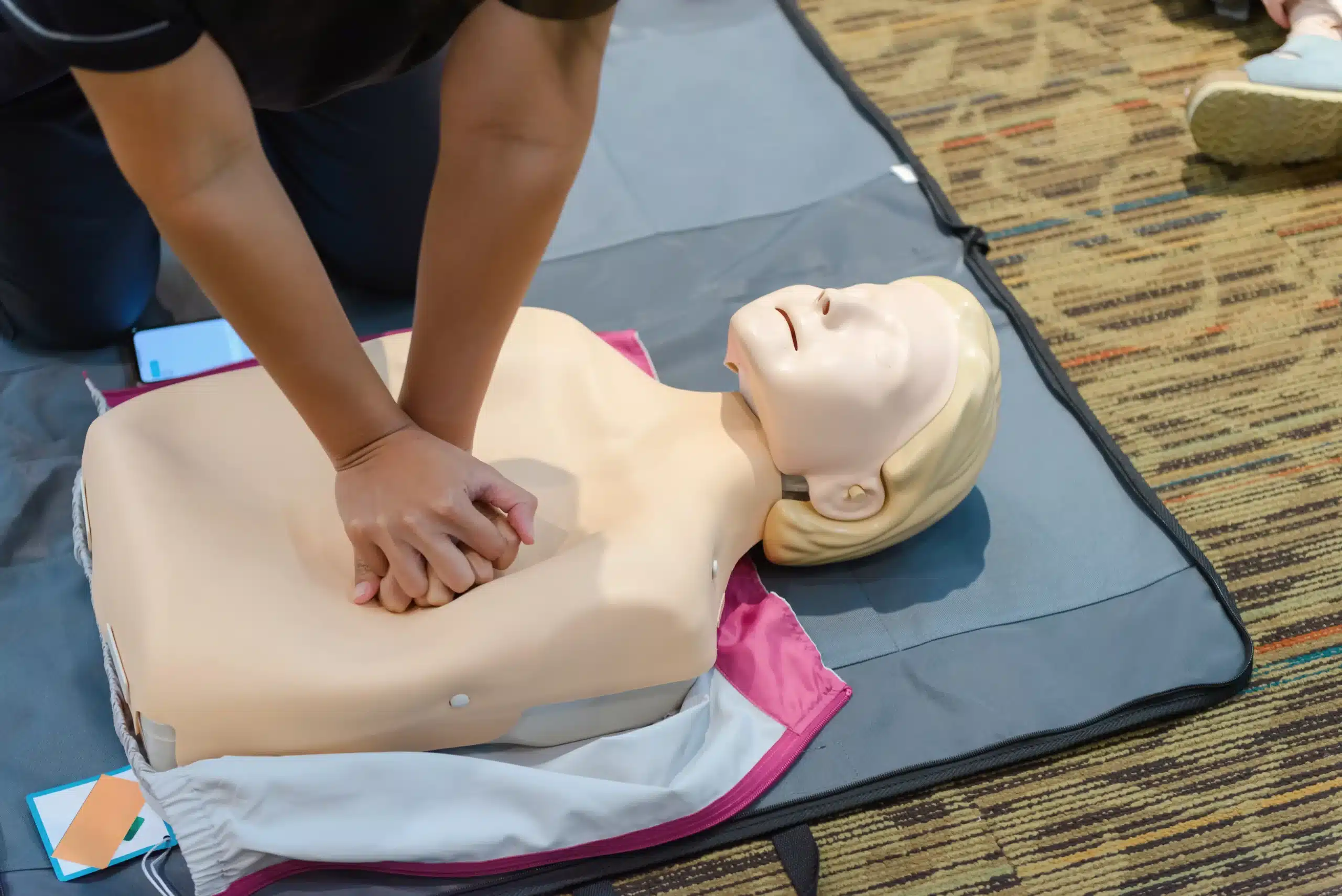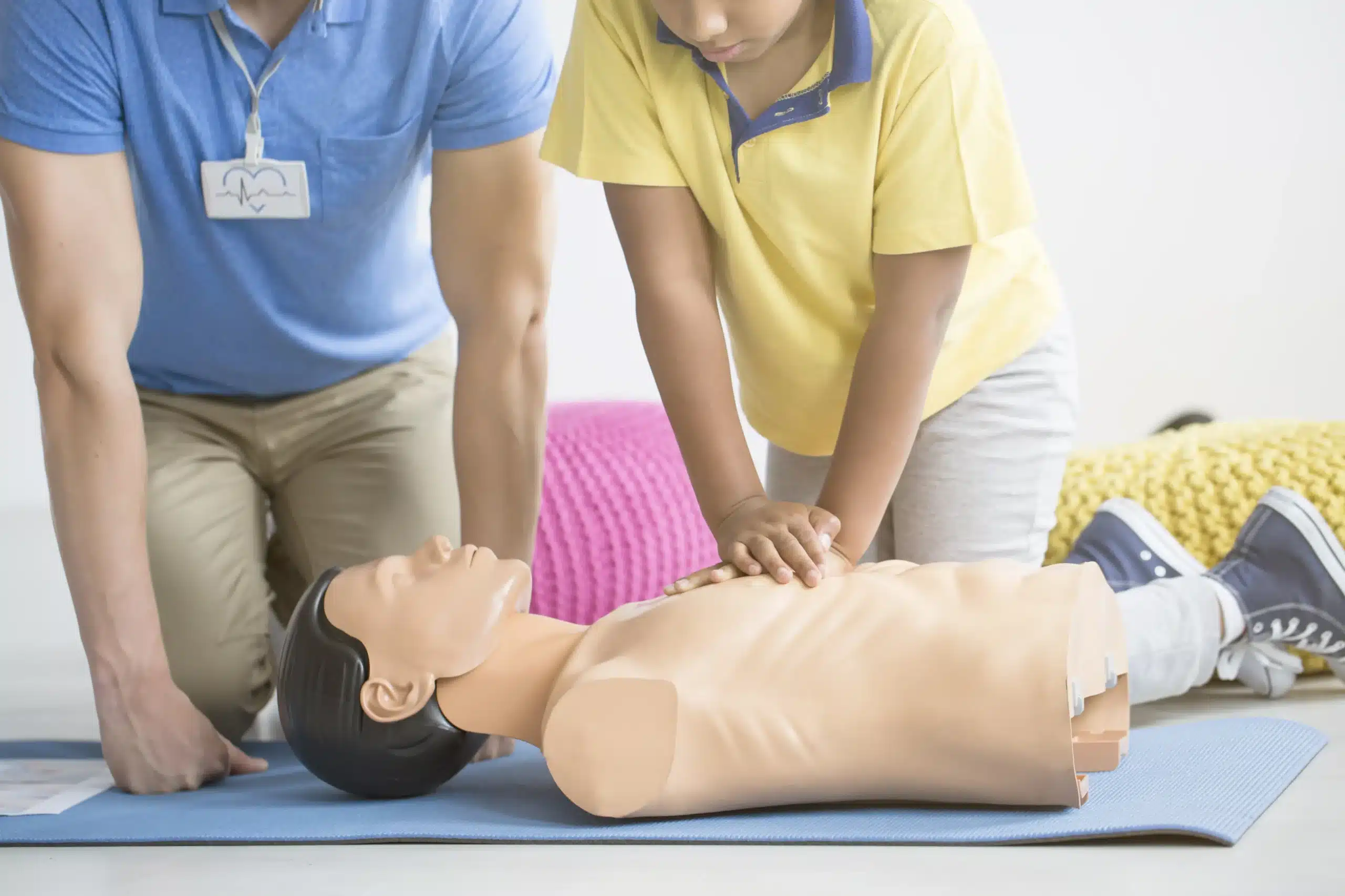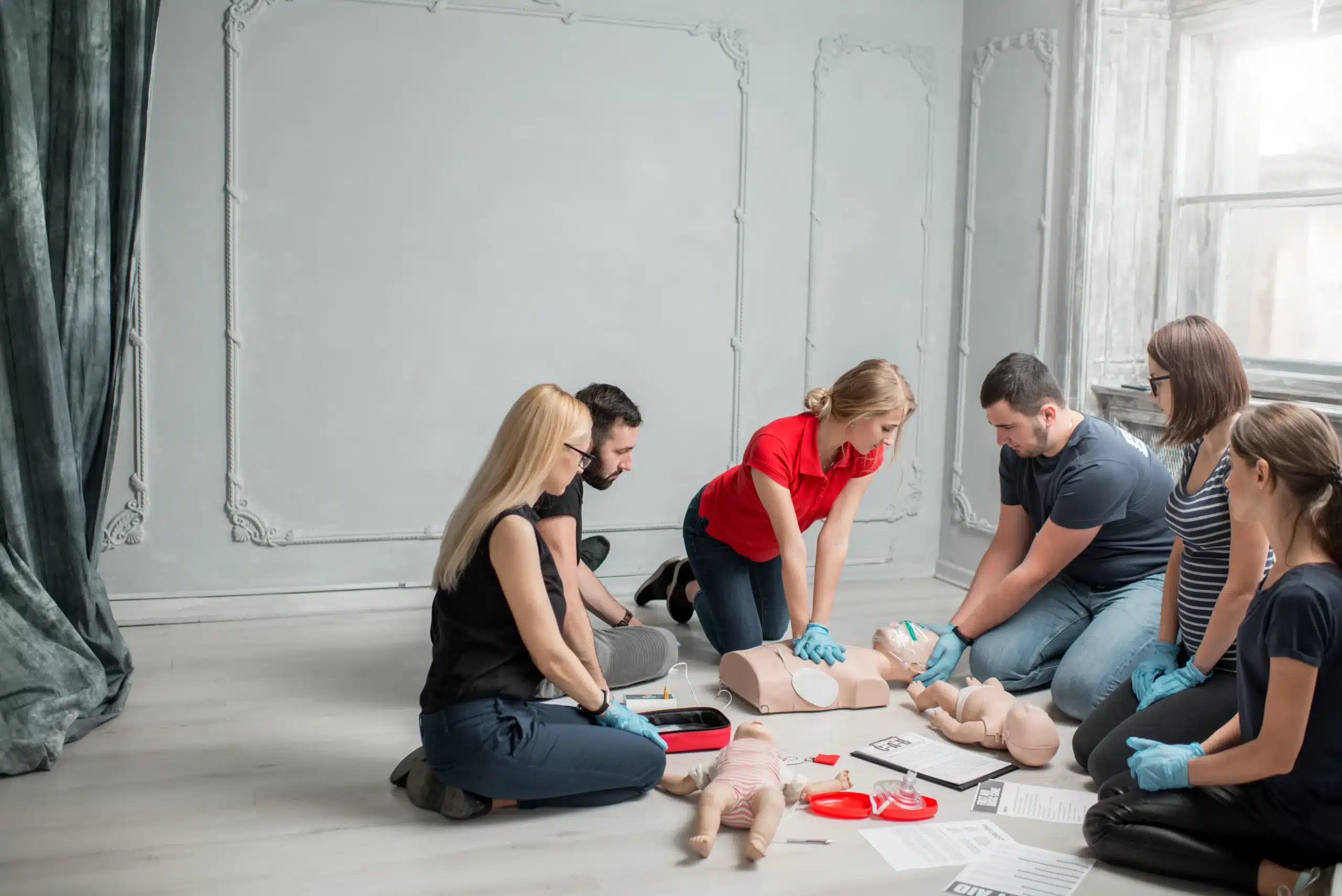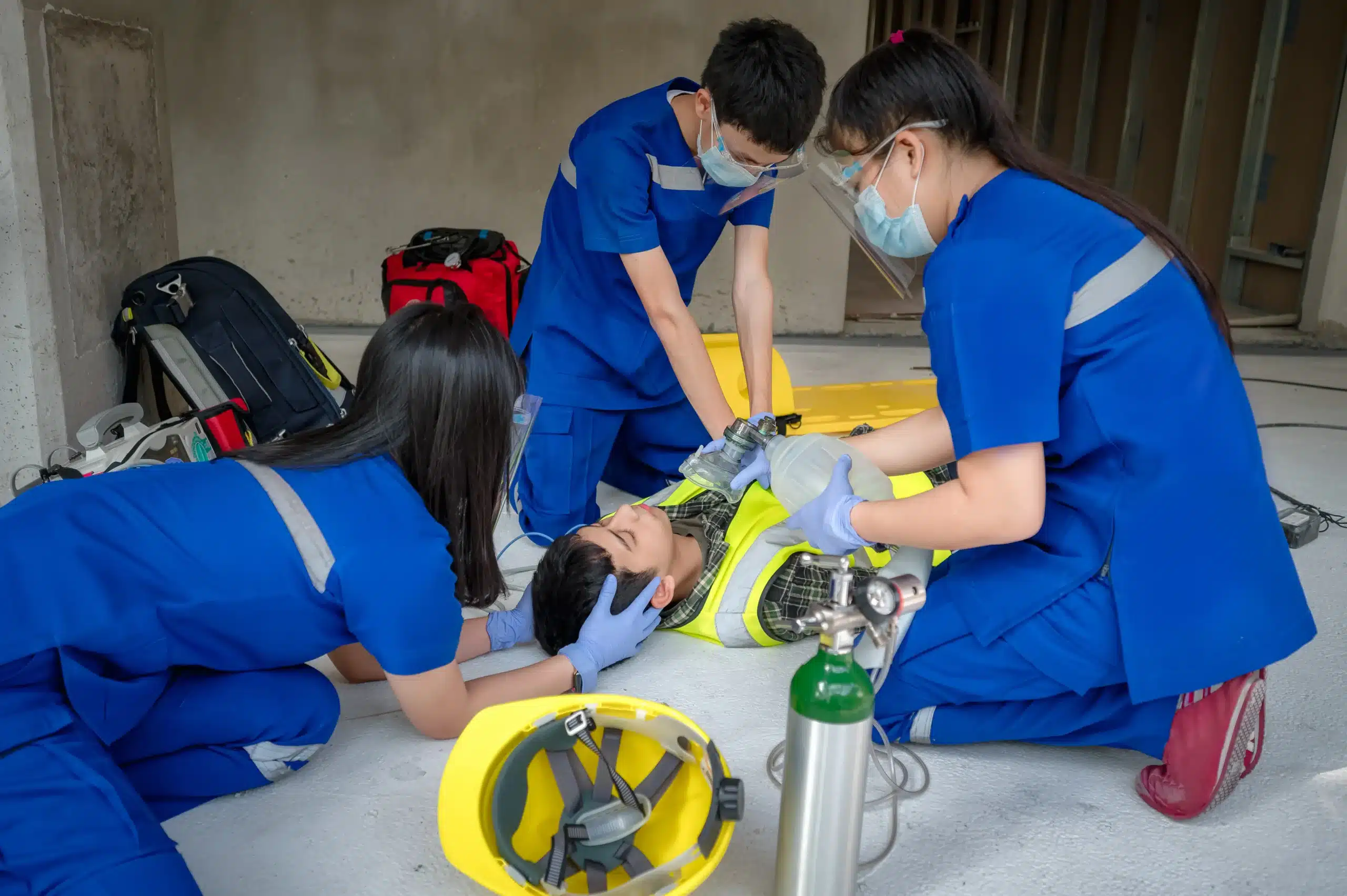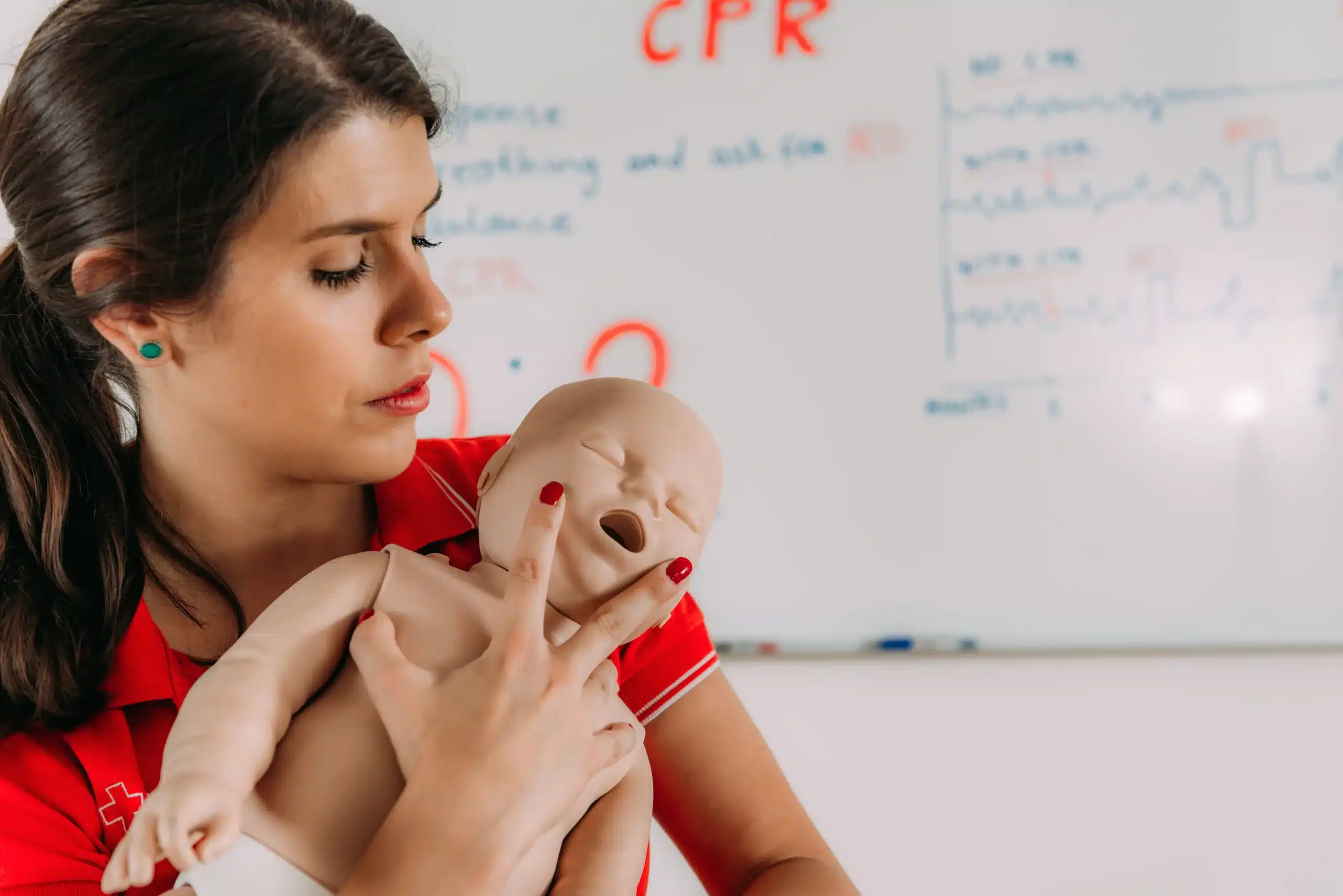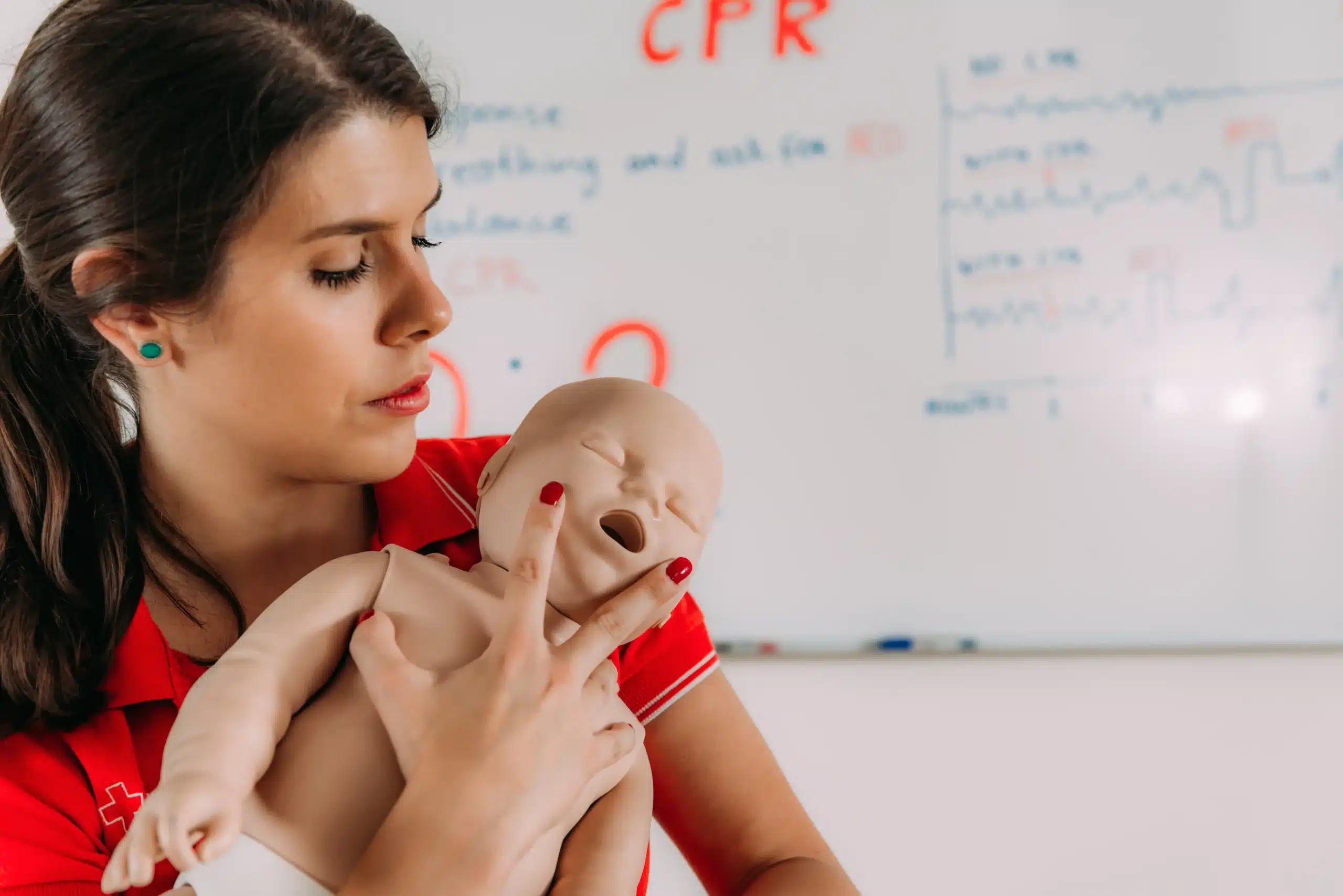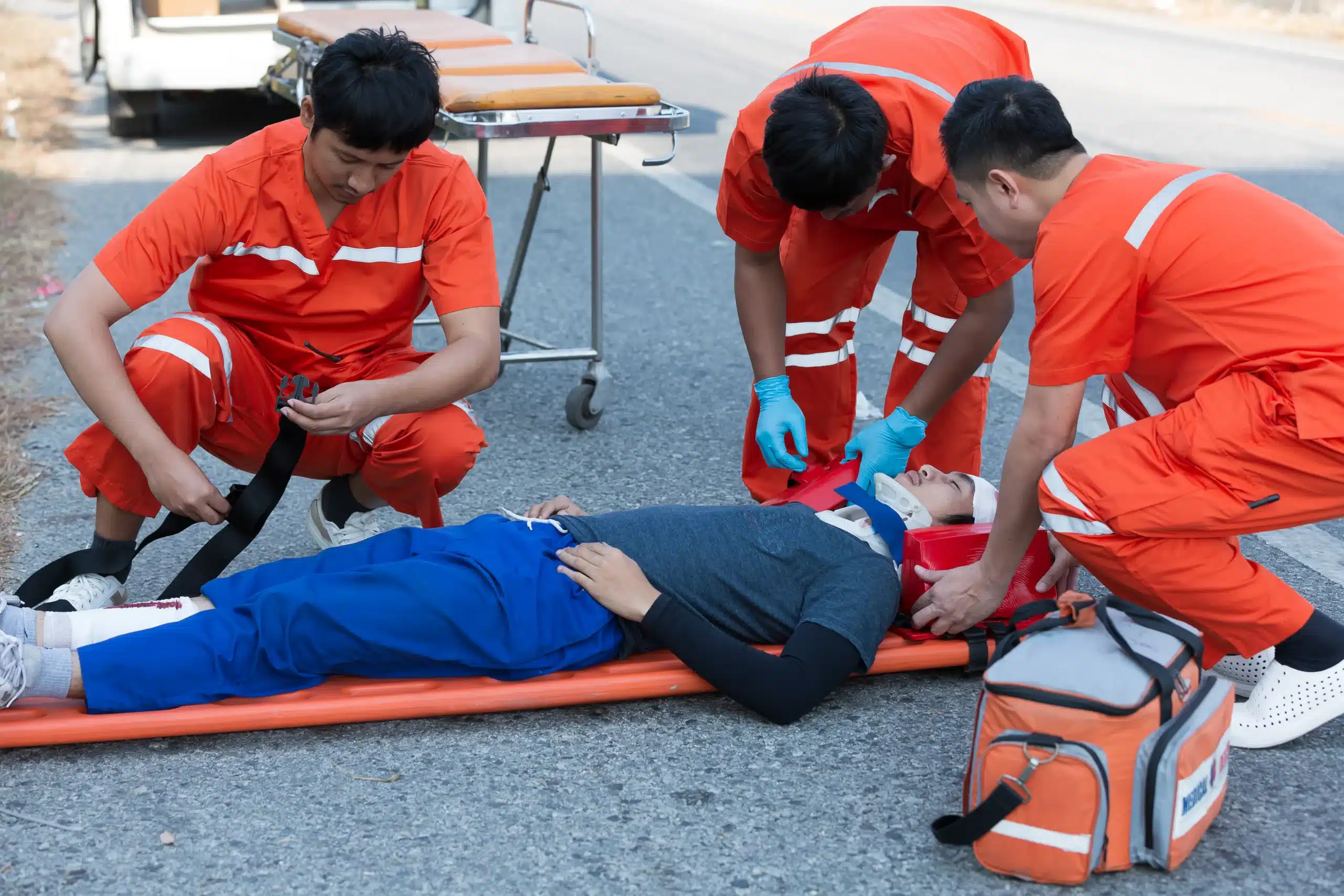Cardiac Life Support in Rancho Cordova CA:
As a healthcare provider in Rancho Cordova, you understand the critical need for advanced skills in emergency situations. When a patient experiences a life-threatening cardiac event, every second matters. That’s why Advanced Cardiac Life Support (ACLS) training is so vital. It equips you with the knowledge and practical skills to manage complex cardiovascular emergencies effectively. This article will explore the significance of advanced cardiac life support in Rancho Cordova, covering everything from the core components of ACLS to the benefits of certification. We’ll also address common misconceptions about ACLS training and discuss the importance of staying up-to-date with the latest guidelines. Whether you’re a nurse, physician, paramedic, or other healthcare professional, this guide will provide valuable insights into the world of ACLS.
Key Takeaways
- ACLS is essential for advanced cardiac care: It provides healthcare professionals with the skills to manage life-threatening emergencies, going beyond basic life support. This specialized training emphasizes rapid assessment, advanced interventions, and effective teamwork.
- Choosing the right training program is key: Look for AHA-accredited providers with experienced instructors, hands-on simulations, and updated materials. Consider factors like cost, location, and schedule to find the best fit for your needs.
- Maintaining your ACLS skills requires ongoing effort: Regularly review the latest guidelines, participate in refresher courses, and seek opportunities to practice your skills. Staying current ensures you can confidently and effectively respond to cardiac emergencies.
What is Advanced Cardiac Life Support (ACLS)?
Definition and Purpose
Advanced Cardiovascular Life Support (ACLS) is a set of clinical algorithms and best practice recommendations intended to improve survival rates from life-threatening cardiovascular emergencies. It’s a comprehensive approach that builds upon the foundational skills of Basic Life Support (BLS). ACLS focuses on high-quality CPR and incorporates advanced interventions such as airway management, rhythm recognition, and medication administration. These interventions are designed to stabilize the patient and address the underlying causes of the emergency. ACLS is a critical skill set for healthcare professionals who may encounter these situations, including physicians, nurses, paramedics, and respiratory therapists. It emphasizes teamwork, effective communication, and rapid response to maximize patient outcomes. For more information on the core concepts of ACLS, you can explore resources like these.
Key Differences Between ACLS and BLS
While both BLS and ACLS aim to save lives during cardiovascular emergencies, they differ significantly in scope and complexity. BLS, as taught in our CPR and First-Aid certification courses, provides the essential first steps in responding to cardiac arrest and respiratory distress. It emphasizes high-quality chest compressions, rescue breaths, and automated external defibrillator (AED) use. ACLS expands upon these fundamentals by incorporating advanced airway management techniques, intravenous drug administration, and electrocardiogram (ECG) interpretation. The Red Cross website offers a helpful comparison of ACLS and BLS. ACLS providers are trained to manage complex cases, including arrhythmias, strokes, and acute coronary syndromes. This advanced training equips healthcare professionals to make critical decisions and provide more comprehensive care during these critical events.
Common ACLS Training Misconceptions
One common misconception surrounding ACLS training is the idea that certification is a one-time achievement. In reality, ACLS guidelines and best practices are constantly evolving to reflect the latest scientific evidence and clinical experience. Therefore, regular recertification is essential for healthcare providers to maintain their skills and stay current with recommendations. Another misconception is that ACLS training is only relevant for professionals working in hospital settings. Master ACLS explains how any healthcare provider who might respond to a cardiac emergency can benefit from this training. This includes professionals in various settings, such as clinics, outpatient surgical centers, and even some community-based healthcare roles. Having a broad base of healthcare professionals trained in ACLS ensures a more robust and effective response to cardiac emergencies, regardless of location.
Why is ACLS Training Important in Rancho Cordova?
Knowing ACLS can make a real difference in Rancho Cordova. It’s a skill set that equips healthcare providers, first responders, and even everyday people with the tools to handle serious medical situations. This section explores why ACLS training is so valuable in our community.
Impact on Patient Outcomes
ACLS training plays a vital role in improving patient outcomes during cardiac emergencies. When someone experiences a life-threatening cardiovascular event, seconds count. Healthcare professionals trained in ACLS can quickly assess the situation, perform advanced interventions, and stabilize the patient, significantly increasing their chances of survival and positive recovery. These skills empower individuals to deliver timely and effective care when it matters most. Learn more about how ACLS training impacts patient outcomes.
Legal and Professional Requirements
For many healthcare professionals in Rancho Cordova, maintaining ACLS certification is often a legal and professional requirement. Hospitals, clinics, and other healthcare facilities require their staff to hold current ACLS certification to ensure they meet a high standard of care. This certification demonstrates a commitment to staying up-to-date with the latest advancements in emergency cardiac care. It’s not just a one-time thing either; recertification ensures providers remain at the forefront of ACLS best practices.
Applicability Beyond Hospital Settings
While often associated with hospitals, the value of ACLS extends beyond those walls. Paramedics and EMTs utilize ACLS in the field, administering life-saving interventions before the patient even reaches the hospital. This pre-hospital care can be crucial in stabilizing patients and buying valuable time. Additionally, anyone who might encounter a cardiac emergency, from workplace first responders to community members, can benefit from ACLS training. It’s a skill set applicable in various settings, making our community safer and more prepared.
Essential ACLS Training Components
ACLS certification goes beyond basic life support, equipping healthcare providers with advanced skills to manage life-threatening cardiovascular emergencies. Here’s a closer look at the core components of ACLS training:
Advanced Airway Management Techniques
Effective airway management is crucial during cardiac emergencies. ACLS training covers advanced techniques like endotracheal intubation, ensuring healthcare professionals can establish and maintain a secure airway to deliver oxygen and ventilation. This training also addresses the use of other airway devices and adjuncts, preparing providers for various clinical scenarios. For more information on airway management, explore resources available through Cascade Training Solutions.
Pharmacology in Cardiac Emergencies
Administering the right medications at the right time is critical in cardiac emergencies. ACLS training emphasizes pharmacology, covering the appropriate use of medications like epinephrine and amiodarone. Participants learn about drug dosages, indications, contraindications, and potential side effects, ensuring safe and effective medication administration. Master ACLS offers a helpful overview of ACLS pharmacology.
Cardiac Rhythm Recognition and Interpretation
Rapid and accurate identification of cardiac rhythms is essential for effective treatment. ACLS training equips healthcare providers with the skills to recognize and interpret various cardiac rhythms, such as ventricular fibrillation, ventricular tachycardia, and asystole. This knowledge enables them to make informed decisions about appropriate interventions, including defibrillation, cardioversion, and pacing. For guidance on avoiding common mistakes in cardiac rhythm interpretation, visit Master ACLS.
Post-Cardiac Arrest Care
Post-cardiac arrest care plays a vital role in patient recovery and minimizing long-term complications. ACLS training covers essential post-arrest interventions, including targeted temperature management, hemodynamic support, and neurological monitoring. The American Heart Association (AHA) provides updated guidance on post-arrest care protocols, emphasizing the importance of a comprehensive approach to optimize patient outcomes.
ACLS Training Providers in Rancho Cordova
Finding the right Advanced Cardiac Life Support (ACLS) training provider is crucial for healthcare professionals. Here are a few options in and around Rancho Cordova:
Carmichael CPR Classes (Safety Training Seminars)
Carmichael CPR Classes, run by Safety Training Seminars, offers ACLS certification along with other courses like BLS, PALS, and First Aid. As a woman-owned American Heart Association Training Center, they focus on providing high-quality instruction and convenient scheduling, with classes offered daily. Their location in Carmichael makes them easily accessible to those living or working in Rancho Cordova. Visit their website for current course schedules and pricing.
NorCal Emergency Medical Training
NorCal Emergency Medical Training offers ACLS certification among its various AHA-certified courses, serving Rancho Cordova and the greater Sacramento area. As the only AHA-authorized training center in the region, they emphasize high-quality training to prepare healthcare providers for real-world emergencies. Learn more about their ACLS courses on their website.
Other Local Providers
While options may be limited within Rancho Cordova, consider nearby providers. Safety Training Seminars in Carmichael offers various certification courses, including ACLS and PALS. Their proximity to Rancho Cordova makes them a convenient option for those seeking quality training.
What to Expect in an ACLS Course
So, you’re ready to take the next step and enroll in an Advanced Cardiac Life Support (ACLS) course? Great! Knowing what to expect can help you feel prepared and confident. This section covers the typical course format, the importance of hands-on training, and what’s involved in getting (and keeping) your ACLS certification.
Course Duration and Format
ACLS courses are usually completed in one or two days, depending on the provider and whether it’s an initial certification or a renewal. Expect a blend of interactive lectures, discussions, and most importantly, hands-on practice. The curriculum follows the most recent American Heart Association Guidelines, so you’re learning the latest evidence-based practices. Carmichael CPR Classes keeps their courses updated, ensuring students receive high-quality training.
Hands-on Practice and Simulations
ACLS courses aren’t just about lectures. A significant portion involves hands-on practice and simulations. You’ll work with a team, practicing essential skills like airway management, intravenous (IV) line insertion, and medication administration. These simulations provide a safe environment to apply your knowledge and build confidence in managing real-life cardiac emergencies. This practical experience is invaluable for translating classroom learning into effective patient care. Carmichael CPR Classes emphasizes this hands-on approach to reinforce learning and build proficiency.
Certification Process and Renewal Requirements
Upon successful completion of the course, including written exams and skills testing, you’ll receive your ACLS provider card. This certification is typically valid for two years. To maintain your certification, you’ll need to complete a recertification course before it expires. This ensures you stay up-to-date with the latest advancements in ACLS and maintain your skills. Remember, ongoing training is key to providing the best possible patient care.
ACLS Training Prerequisites and Preparation
Before you sign up for Advanced Cardiac Life Support (ACLS) training, it’s helpful to understand the prerequisites and how to prepare. Knowing the requirements and taking the time to prepare sets you up for a smoother learning experience.
BLS Certification Requirement
A current Basic Life Support (BLS) certification is a must-have before starting ACLS. ACLS builds on the foundational skills taught in BLS, focusing on the more advanced aspects of life support. You can find BLS certification courses in Carmichael if you need to renew or obtain your BLS provider card. This prerequisite ensures you’re ready to handle the complexities of ACLS training.
Recommended Medical Knowledge
While not strictly mandatory, a solid understanding of core medical concepts will significantly benefit you in ACLS training. Familiarity with medical terminology, basic anatomy, and physiology will make grasping the advanced material easier. ACLS courses often cover topics like cardiac rhythms, pharmacology, and airway management, so prior knowledge in these areas can give you a head start. Think of it as building a strong foundation to support the advanced concepts you’ll learn.
Study Materials and Pre-Course Work
Many ACLS providers offer pre-course materials and assessments. Take advantage of these resources. Reviewing the study guides and completing practice tests can help you identify areas where you might need extra focus. Some providers require a passing score on a pre-course self-assessment before you can attend the class. NorCal CPR is one example. This preparation ensures you’re coming into the course with a baseline understanding, allowing you to get the most out of the training.
ACLS Certification: Cost and Value
Getting ACLS certified is an investment in your career and the lives of your patients. But how much does it cost, and what value does it bring? Let’s break down the typical pricing for ACLS certification in Rancho Cordova and explore how this training can benefit your career.
Average Pricing in Rancho Cordova
ACLS course fees in Rancho Cordova vary, often depending on the format (in-person, online, or blended learning), the training provider, and what’s included. Expect prices to start around $150 to $250 for basic ACLS certification. Some courses may include extras like renewal reminders or access to online resources, which could influence the total cost. Carmichael CPR Classes offers ACLS training and maintains a low price guarantee, so check their site for current rates.
Potential Discounts and Package Deals
Want to save on your ACLS certification? Many training providers offer discounts, particularly for groups. This is a great option for hospitals or clinics looking to train multiple staff members. Some providers also bundle ACLS training with other certifications like BLS or PALS, creating a discounted package. Always inquire about potential discounts or promotions when contacting a training center. For example, ACLS123 offers group discounts.
Career Advancement Opportunities
ACLS certification is more than just a credential; it signifies advanced skills and knowledge in cardiac care. This can create new opportunities for healthcare professionals, such as specialized roles in emergency departments, critical care units, or rapid response teams. It can also make you a stronger candidate for promotions and raises. Medtigo discusses how valuable ACLS training is for healthcare providers dealing with cardiac emergencies. Some healthcare facilities require ACLS certification for certain positions, making it crucial for career advancement. So, while ACLS training has a cost, the potential career benefits can be substantial.
Choose the Right ACLS Training Provider
Finding the right Advanced Cardiac Life Support (ACLS) training provider is crucial for a successful learning experience. It’s an investment in your skills and directly impacts your ability to provide effective care during emergencies. Here’s what to consider:
Accreditation and Credentials
First, verify the training center’s accreditation and credentials. Ensure they are an authorized provider of American Heart Association (AHA) courses. NorCal Emergency Medical Training, for example, is the only AHA-authorized Training Center in the Greater Sacramento area. This accreditation ensures the curriculum meets the latest AHA guidelines and your certification will be widely recognized.
Instructor Qualifications and Experience
The quality of instruction significantly impacts your understanding of ACLS concepts and procedures. Look for training centers with experienced instructors actively involved in the medical field. Hands-on learning with instructors who provide immediate feedback is invaluable, translating to better preparedness for real-world scenarios.
Facility and Equipment Quality
A well-equipped training facility enhances learning. Modern equipment and realistic simulations create a more immersive experience, allowing you to practice skills in a setting that mirrors actual emergencies. Check if the training center uses updated AHA guidelines and equipment. NorCal CPR often highlights their use of current guidelines and hands-on training methods.
Student Reviews and Testimonials
Finally, read reviews and testimonials from past students. These firsthand accounts offer valuable insights into the training center’s strengths and weaknesses. Look for comments about the instructors, the facility, and the overall learning experience. A provider with a strong reputation, like NorCal Emergency Medical Training, can make all the difference in your ACLS training.
Recent Updates to ACLS Guidelines
Staying current with the latest American Heart Association (AHA) guidelines is crucial for effective Advanced Cardiac Life Support (ACLS). These guidelines are regularly updated, ensuring healthcare providers deliver the highest quality of care during cardiac emergencies. Here’s a look at some recent key updates:
Emergency Coronary Angiography Recommendations
Recent updates emphasize the importance of emergency coronary angiography in treating cardiac arrest patients. The 2023 AHA Focused Update recommends coronary angiography for all cardiac arrest patients with suspected cardiac origin and ST-segment elevation on electrocardiography (Class 1). This proactive approach aims to quickly identify and address coronary artery blockages, potentially improving patient outcomes. For more details, review the 2023 AHA Focused Update on Adult ACLS.
Post-Cardiac Arrest Seizure Management
The 2023 guidelines also offer new recommendations for managing seizures after cardiac arrest. These seizures can complicate recovery and impact patient outcomes. The update stresses the need for healthcare providers to be prepared to manage these seizures. A review of the AHA Guidelines for Advanced Cardiovascular Life Support offers further insights.
Temperature Control Protocols
Another significant update relates to temperature control protocols for patients who have regained spontaneous circulation (ROSC). The guidelines recommend hospitals establish specific protocols for post-arrest temperature management. The 2023 ACLS Focused Update advises against the routine use of rapid cold intravenous fluid infusion for prehospital cooling of post-ROSC patients. This change seeks to standardize care and optimize patient outcomes. The 2023 AHA Focused Update document offers a complete overview.
Maximize Your ACLS Training Experience
Getting your ACLS certification is a significant step, but truly maximizing its value involves ongoing effort and a commitment to continuous improvement. Here’s how to make the most of your ACLS training:
Tips for Effective Learning
ACLS isn’t just about memorizing algorithms. It’s about developing critical thinking skills and the ability to react decisively in high-pressure situations. Hands-on practice is essential for building muscle memory and confidence. Actively participate in simulations, ask questions, and embrace the learning process. The more comfortable you are with the material, the more effectively you’ll perform in a real emergency. Studying with a group can reinforce concepts and provide valuable peer learning opportunities.
Applying ACLS Skills in Real-World Scenarios
Understanding how ACLS applies in diverse medical settings is crucial. While often associated with hospitals, ACLS skills are invaluable for professionals in various fields. Paramedics and EMTs, for example, often use ACLS protocols in pre-hospital settings, initiating life-saving interventions even before a patient reaches the hospital. Consider how these skills fit into your specific professional role and how you might adapt them to different emergency scenarios.
Continuing Education and Skill Maintenance
ACLS certification isn’t a one-time event. Medical knowledge and best practices are constantly evolving. Regularly review updated guidelines, participate in refresher courses, and seek opportunities to practice your skills. Staying current ensures you’re providing the best possible care and reinforces your commitment to patient safety. Set reminders for recertification deadlines and explore advanced training to further develop your expertise.
Related Articles
- AHA ACLS Classes in Carmichael, CA – Carmichael CPR Classes
- BLS Courses in Rancho Cordova: Your Complete Guide – Carmichael CPR Classes
- First Aid Training in Carmichael: A Complete Guide – Carmichael CPR Classes
- Why CPR is Important in Healthcare – Carmichael CPR Classes
- AHA PALS Classes in Carmichael, CA – Carmichael CPR Classes
Frequently Asked Questions
How often do I need to renew my ACLS certification? ACLS certification is typically valid for two years. To maintain your credentials and stay up-to-date with the latest guidelines, you’ll need to complete a recertification course before your current certification expires.
What if I don’t work in a hospital? Is ACLS training still relevant for me? Absolutely! While often associated with hospitals, ACLS skills are valuable in various healthcare settings. Anyone who might encounter a cardiac emergency, including paramedics, EMTs, and other healthcare professionals in outpatient settings, can benefit from this training. It equips you to handle emergencies effectively, regardless of location.
I’m nervous about the hands-on portion of the course. What can I expect? The hands-on component is a crucial part of ACLS training. It’s designed to build your confidence and proficiency in performing essential skills. You’ll work in a safe and supportive environment with experienced instructors who provide guidance and feedback. Simulations offer a realistic yet low-pressure setting to practice techniques like airway management, IV insertion, and medication administration.
What’s the difference between ACLS and BLS? BLS provides the foundational skills for responding to basic cardiac and respiratory emergencies, focusing on CPR, rescue breaths, and AED use. ACLS builds upon BLS, incorporating advanced techniques like airway management, ECG interpretation, and medication administration for more complex cardiovascular emergencies. Think of BLS as the essential first steps, while ACLS provides the advanced tools for more critical situations.
How can I find a reputable ACLS training provider in my area? Look for providers accredited by the American Heart Association. Check for experienced instructors, well-equipped facilities, and positive student reviews. Don’t hesitate to contact different providers and ask about their programs, instructor qualifications, and course formats to find the best fit for your needs. Recommendations from colleagues or professional organizations can also be helpful.


